Candidates complete high school graduation exam
On June 26-27, more than 1 million candidates nationwide completed the 2025 High School Graduation Exam.
Information from the Ministry of Education and Training at the press conference on the exam on June 27, the 2025 high school graduation exam took place in quite favorable weather conditions across the country. Preparations for the exam were carried out proactively, urgently, thoroughly, thoughtfully and comprehensively.
The organization of the exam at all exam locations ensures safety, seriousness, and compliance with the Plan, meeting the requirements for a compact and practical exam. The exam is organized seriously, honestly, objectively, safely, and in accordance with regulations, ensuring convenience and fairness for all candidates.
The Examination Steering Committees at all levels have strengthened the inspection and examination of the organization of examinations at examination sites, promptly detected, reminded and supported the overcoming of limitations and shortcomings in the process of organizing examinations to strengthen examination school discipline and maintain strict examination room discipline. Some shortcomings in the performance of duties of examination officers have been promptly overcome.
During the entire exam, 41 candidates violated the exam regulations and were suspended from the exam due to using documents and bringing phones into the exam room; no staff member was recorded violating the exam regulations. Up to this point, nationwide, there have been no recorded cases of negative phenomena or organized cheating.
The exam work is carried out seriously, safely and confidentially from the central to local levels. The exam basically meets the requirements for organizing the exam. According to the initial assessment of candidates, teachers and public opinion, the exam questions/subjects are within the high school curriculum.
To fully meet the three purposes of the Exam, the exam of the 2025 High School Graduation Exam has been adjusted many times. Accordingly, the exam is designed in the direction of assessing capacity, the exam integrates many practical questions, the exam integrates many interdisciplinary knowledge, etc. The exam ensures appropriate differentiation so that it can be used to consider recognition of high school graduation while providing reliable data on candidates' capacity for universities and vocationaleducation institutions to use for enrollment in the spirit of autonomy.
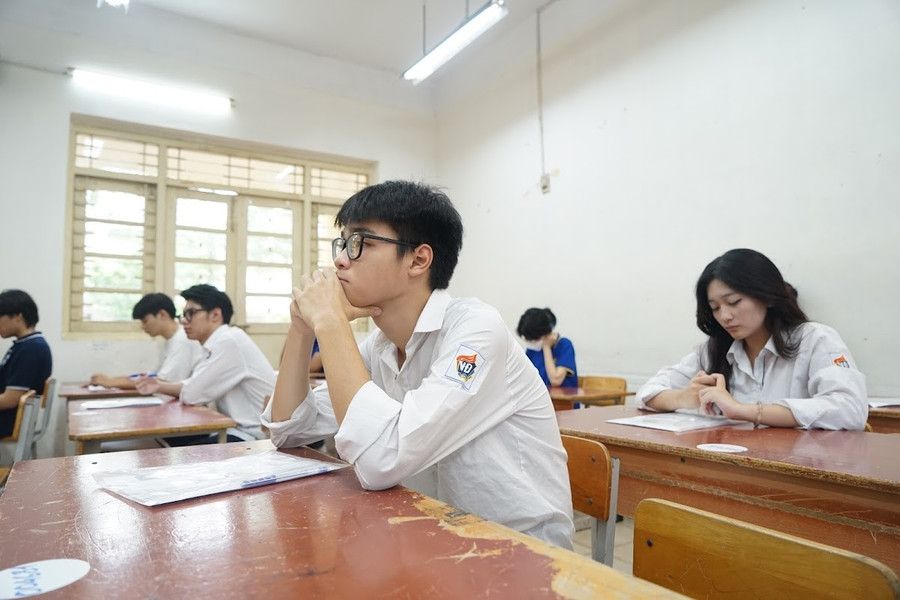
After the exam was over, the issue that the public, candidates, and parents were most concerned about was the differentiation of the exam, especially in Math and English. Regarding this content, Mr. Nguyen Ngoc Ha, Head of the Exam Committee, Deputy Director of the Department of Quality Management (Ministry of Education and Training), said: This year's exam has many new points because it is the first time applying the form of competency assessment, so students may feel the difference.
However, the Ministry of Education and Training has announced the structure, format of the exam and reference questions very early so that students and teachers have time to get acquainted, prepare, and avoid sudden changes.
In particular, before the official exam, localities also organized large-scale mock exams in all three regions. The results and scores of the mock exams were also carefully studied and discussed by the Exam Board, thereby adjusting the difficulty accordingly. The exam construction closely followed the reference exam and the test results, ensuring stability. It is necessary to wait for the official exam results to have a more complete assessment.
Discussing the exam questions that were assessed to have high differentiation, the Deputy Minister emphasized that if the exam had many high scores not because of the students' real abilities, but because the questions were easy, would it be fun? On the contrary, if students achieved 6-7 points, but this was a result that truly reflected their abilities, they could still be confident and have many options to continue on the path to adulthood. Moreover, the graduation score only accounts for 50%, so the exam questions must ensure differentiation for graduation and admission to higher education.
According to the Deputy Minister, it is worth noting that this year's exam focuses on assessing students' abilities, helping them apply knowledge to solve practical problems.
Regarding handling exam cheating, the Deputy Minister said that yesterday afternoon, right after the end of the Math exam, the Ministry issued an urgent dispatch to localities, requesting continued strengthening of inspection and supervision.
According to the Deputy Minister, this year's exam has many big challenges, especially the development of artificial intelligence, but the Ministry of Education and Training acknowledges and appreciates the efforts of the forces and teachers who have contributed to ensuring security and safety for the exam.

National Assembly passes 2 Resolutions on education
The two Resolutions on education passed by the National Assembly last week (both on June 26) are: Resolution on universalizing preschool education for children from 3 to 5 years old; Resolution on exemption and support of tuition fees for preschool children, general education students and learners of general education programs in educational institutions within the national education system.
The Resolution on universalizing preschool education for children from 3 to 5 years old sets the target by 2030: 100% of provinces and centrally run cities will meet the standards of universalizing preschool education for children from 3 to 5 years old.
The State ensures resources for universal preschool education for children from 3 to 5 years old and mobilizes social resources according to the provisions of law. Universal preschool education for children from 3 to 5 years old is implemented according to a roadmap, in accordance with the socio-economic development conditions of the locality, ensuring universalization conditions according to regulations.
The Resolution stipulates 5 groups of mechanisms and policies for implementation, including: Investing in developing the network of schools and classes and ensuring facilities and teaching equipment according to regulations; ensuring sufficient number of preschool teachers according to prescribed norms;
Ensure policies and regimes for children from 3 to 5 years old, management staff, teachers and employees in preschools; mobilize social resources to develop preschool education according to the provisions of law;
Prioritize the development of preschool education in areas with particularly difficult socio-economic conditions, ethnic minority areas, mountainous areas, border areas, islands, coastal areas, densely populated areas, areas with industrial parks, clusters, and export processing zones.
Also according to the Resolution, the budget for implementing the policy of universalizing preschool education for children from 3 to 5 years old is guaranteed by the state budget according to the decentralization of state budget management. The central budget supports localities that have not balanced their budgets to implement the policy of universalizing preschool education for children from 3 to 5 years old according to the provisions of law. In addition, other legal sources of capital are also mobilized to implement the Resolution.
On the afternoon of June 26, the National Assembly passed a Resolution on tuition exemption and support for preschool children, high school students and students of general education programs in educational institutions within the national education system.
According to the Resolution, starting from the 2025-2026 school year, all preschool children, primary school students and general education program students who are Vietnamese citizens or people of Vietnamese origin whose nationality has not been determined, living in Vietnam, if studying in educational institutions in the national education system, will be exempted from or supported by the State for tuition fees.
At public educational institutions, students in the above categories will be exempted from tuition fees. At private educational institutions, students will receive partial financial support from the State to pay tuition fees.
The level of support is decided by the People's Council of the province or centrally-run city, based on the tuition fee framework prescribed by the Government, but not exceeding the actual tuition fee of private educational institutions. The Resolution takes effect immediately upon its approval.
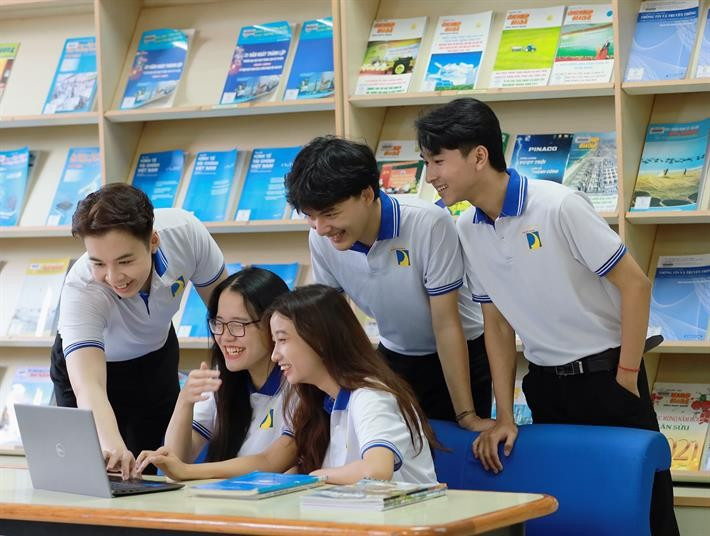
Announcing draft 2 Laws on Education
On June 26, the Ministry of Education and Training announced the draft revised Law on Vocational Education (VET) on the Ministry's electronic information portal to collect comments as prescribed. Compared to the current Vocational Education Law, the draft revised VET Law has many contents adjusted, supplemented and amended.
The draft Law omits the objectives of vocational education, classification of vocational education institutions; conditions for establishment, division, separation, merger, and dissolution of vocational education institutions; regulations on establishment of school boards in vocational education institutions belonging to the armed forces; administrative procedures for establishment of branches, registration of additional vocational education activities; conditions for training cooperation with foreign countries, conditions for establishment of representative offices, conditions for establishment of accreditation organizations; contents already stipulated in the Law on Education, Law on Teachers, Law on Civil Servants (authority to establish, divide, separate, merge, and dissolve vocational education institutions; charter of vocational education institutions; state management of vocational education; policies for teachers, students, and pupils; goals of international cooperation in vocational education).
Draft Law amending and perfecting the curriculum, qualifications and organization of vocational education activities; organizational structure of vocational education institutions; autonomy and accountability of vocational education institutions; lecturers, teachers, and vocational trainers; state financial policies for vocational education; finance and assets of vocational education institutions; vocational education accreditation.
The draft Law supplements the vocational secondary school program integrating the core knowledge of the general secondary school program and vocational expertise for students graduating from junior high school; vocational secondary schools; higher education institutions of the armed forces, higher education institutions training in specialized majors and occupations in the field of art that are allowed to participate in college and intermediate level training; recognition of learning outcomes and accumulated professional capacity; the role of enterprises in vocational education; lecturers and co-teachers; vocational education institution standards, training program standards, quality assurance system; investment cooperation activities of Vietnamese vocational education institutions abroad.
Also on June 26, the Ministry of Education and Training announced the draft Law on Higher Education (amended). Compared to the current Law on Higher Education, the draft Law on Higher Education has many contents adjusted, supplemented, and amended.
In particular, the omitted contents include: classification of higher education institutions according to research/application orientation; conditions for establishing member universities in universities (except national universities and regional universities); mandatory regulations on establishing school councils for schools belonging to the armed forces; administrative procedures on opening majors, programs, branches, and quality assessment; regulations that overlap with the Law on Education, the Law on Teachers, and the Law on Civil Servants.
The revised and improved contents include: Establishing legal autonomy, linked with accountability; organizational and operational mechanisms of the school council: model, authority, working relationship; managing the opening of programs according to the post-audit mechanism, linked with fields and locations; verifying and recognizing substantive results from independent organizations; legal status of universities and colleges.
Additional contents include: Digital higher education, lifelong learning, recognition of cumulative learning outcomes; detailed institutionalization of Resolution 57 in higher education (legal rights of research and innovation centers); tuition fees, preferential credit, scholarships, ordering, assigning tasks of training high-quality human resources; classification and standardization of lecturer titles; principles of building a creative, honest, quality-assured academic environment; application of digital technology in inspection and supervision.
Source: https://giaoducthoidai.vn/nong-trong-tuan-thi-tot-nghiep-thpt-thong-qua-2-nghi-quyet-ve-giao-duc-post737791.html



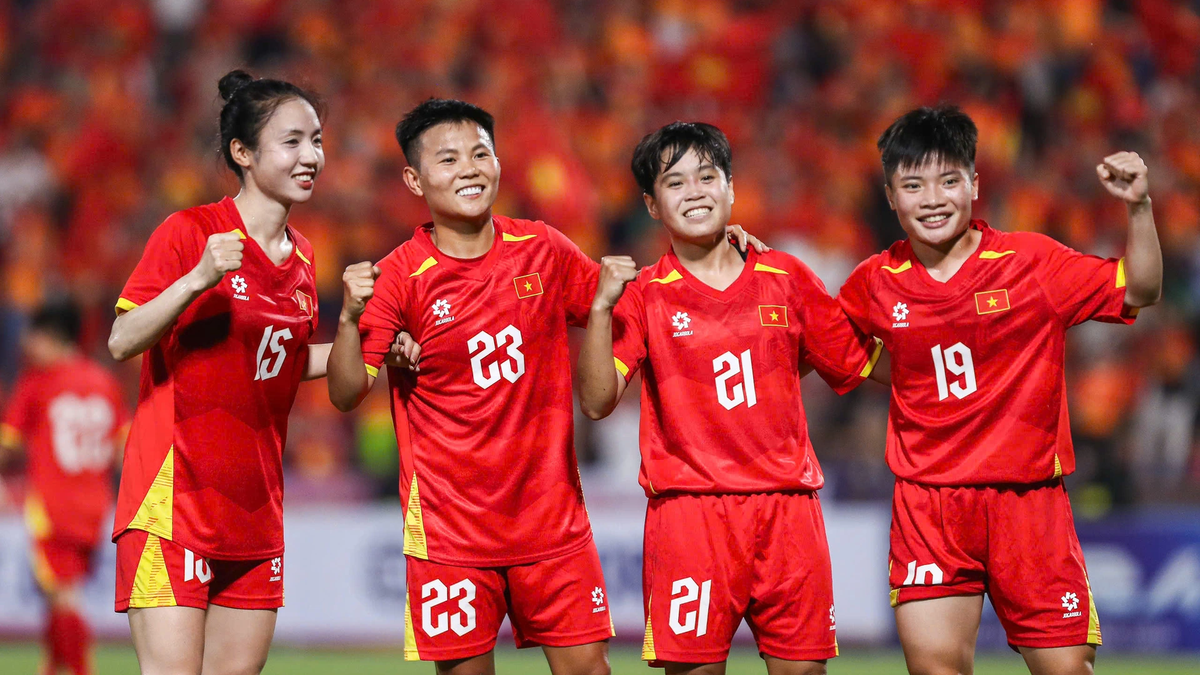
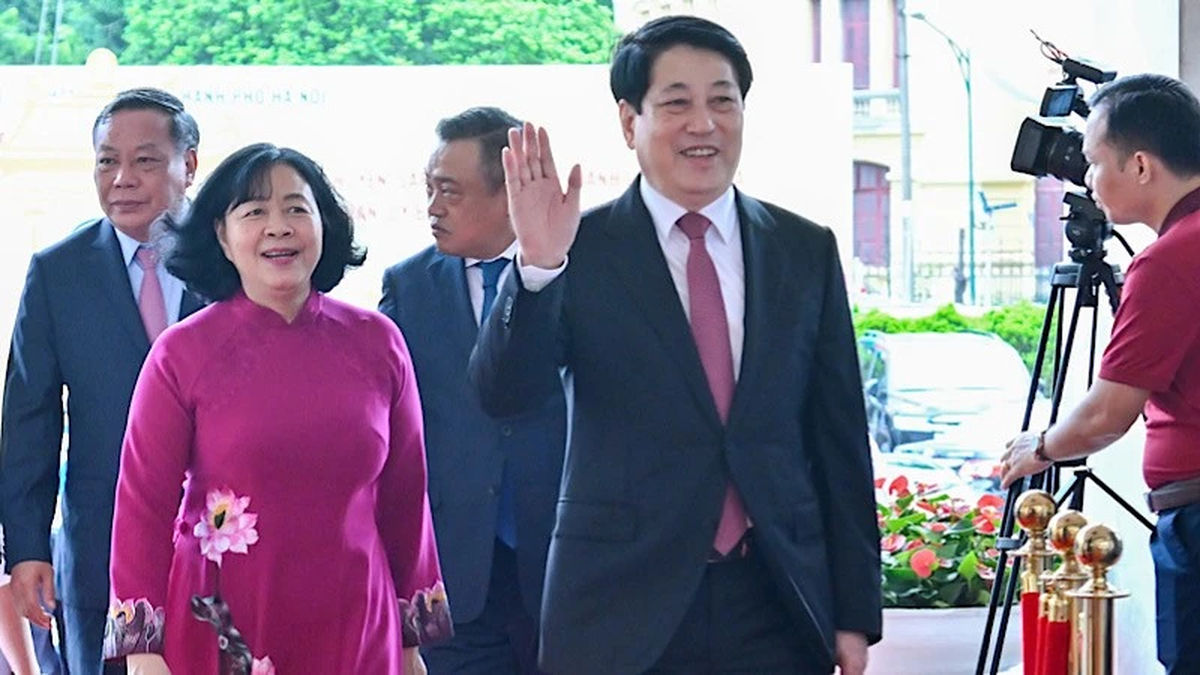

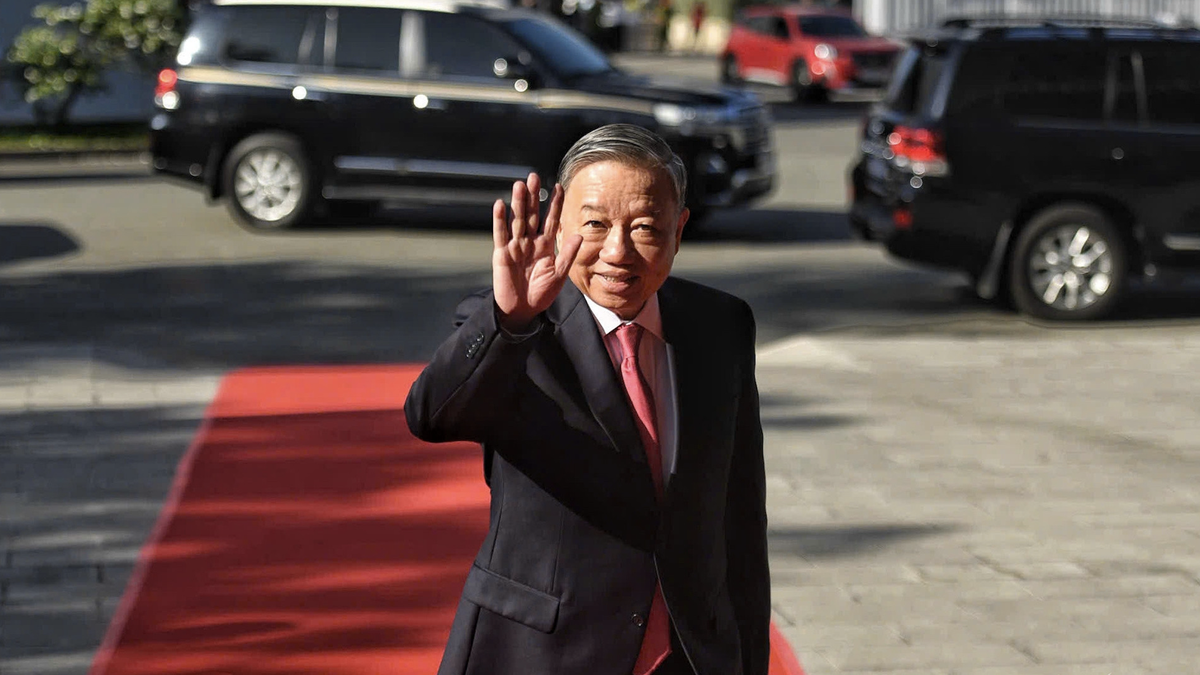



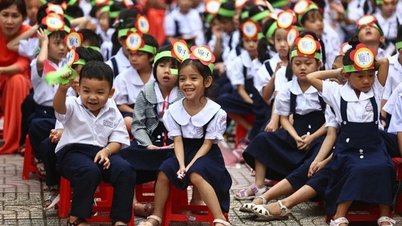

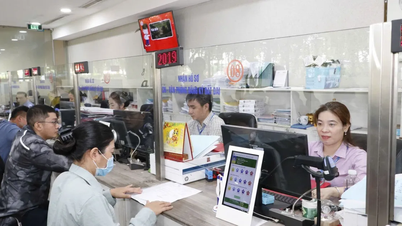



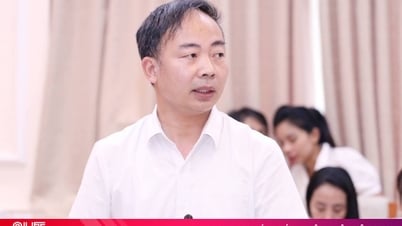


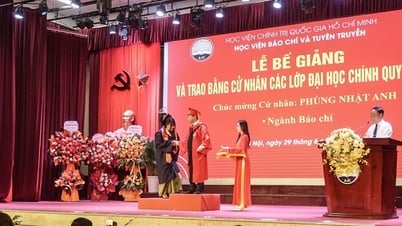

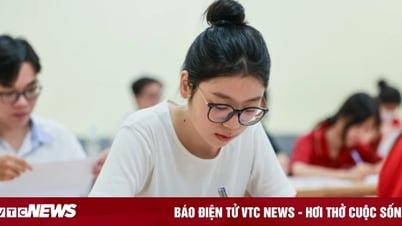

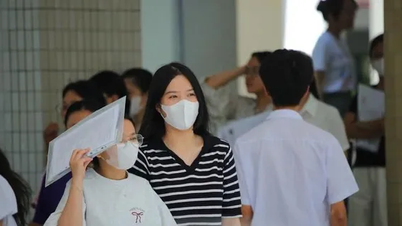

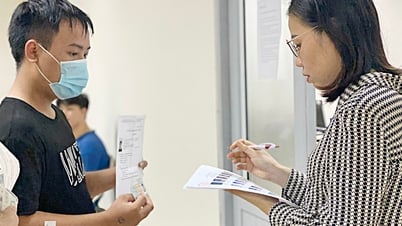






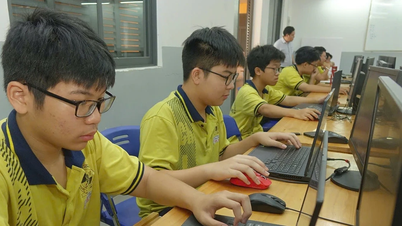
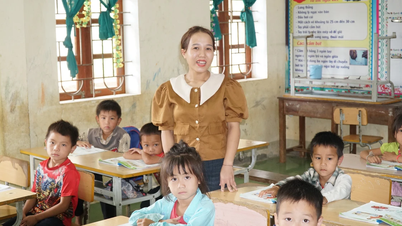

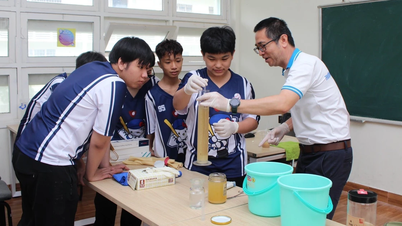

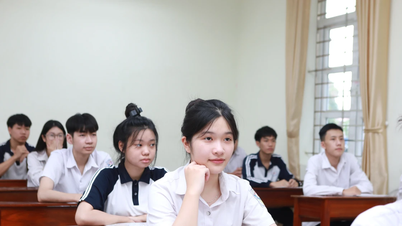







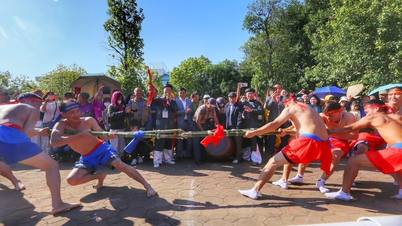

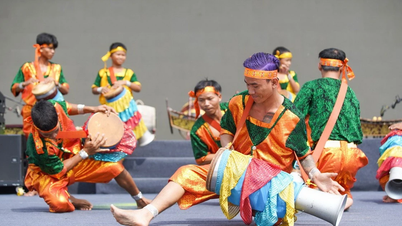








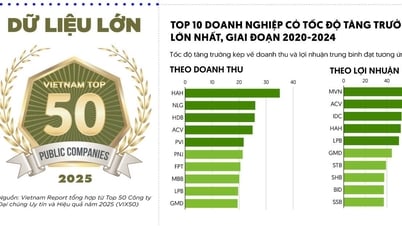




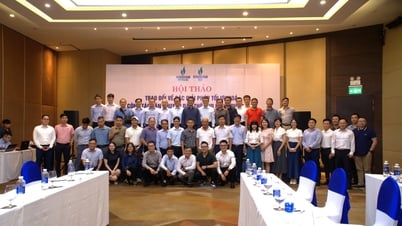
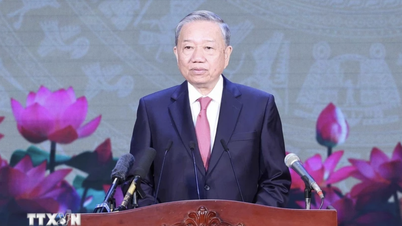
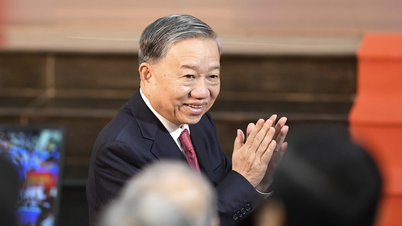

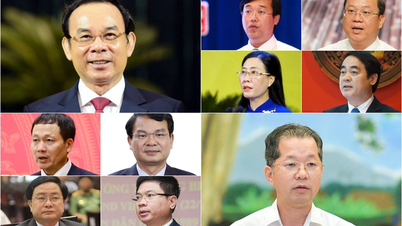
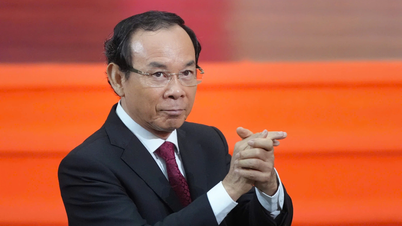

![[Photo] General Secretary attends the announcement ceremony of Resolutions on merging administrative units in Ho Chi Minh City](https://vphoto.vietnam.vn/thumb/402x226/vietnam/resource/IMAGE/2025/6/30/ab1bd03cc8bb4f60b2665f4915f258c5)


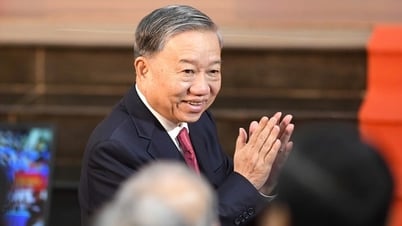


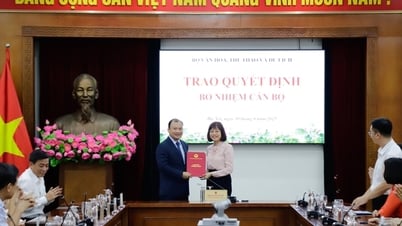
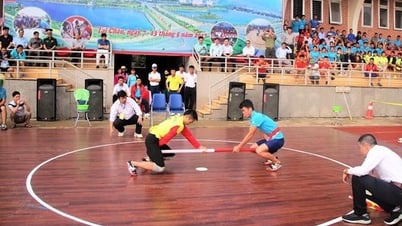






















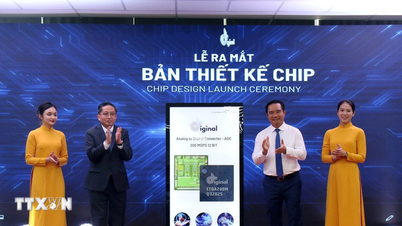





Comment (0)